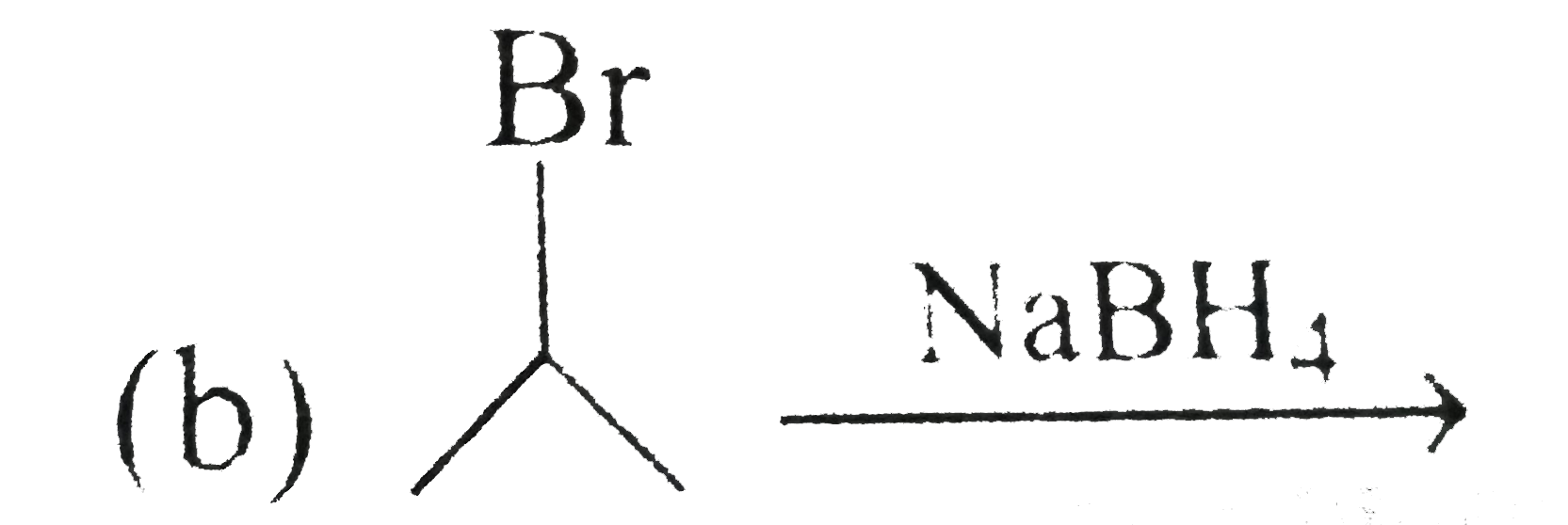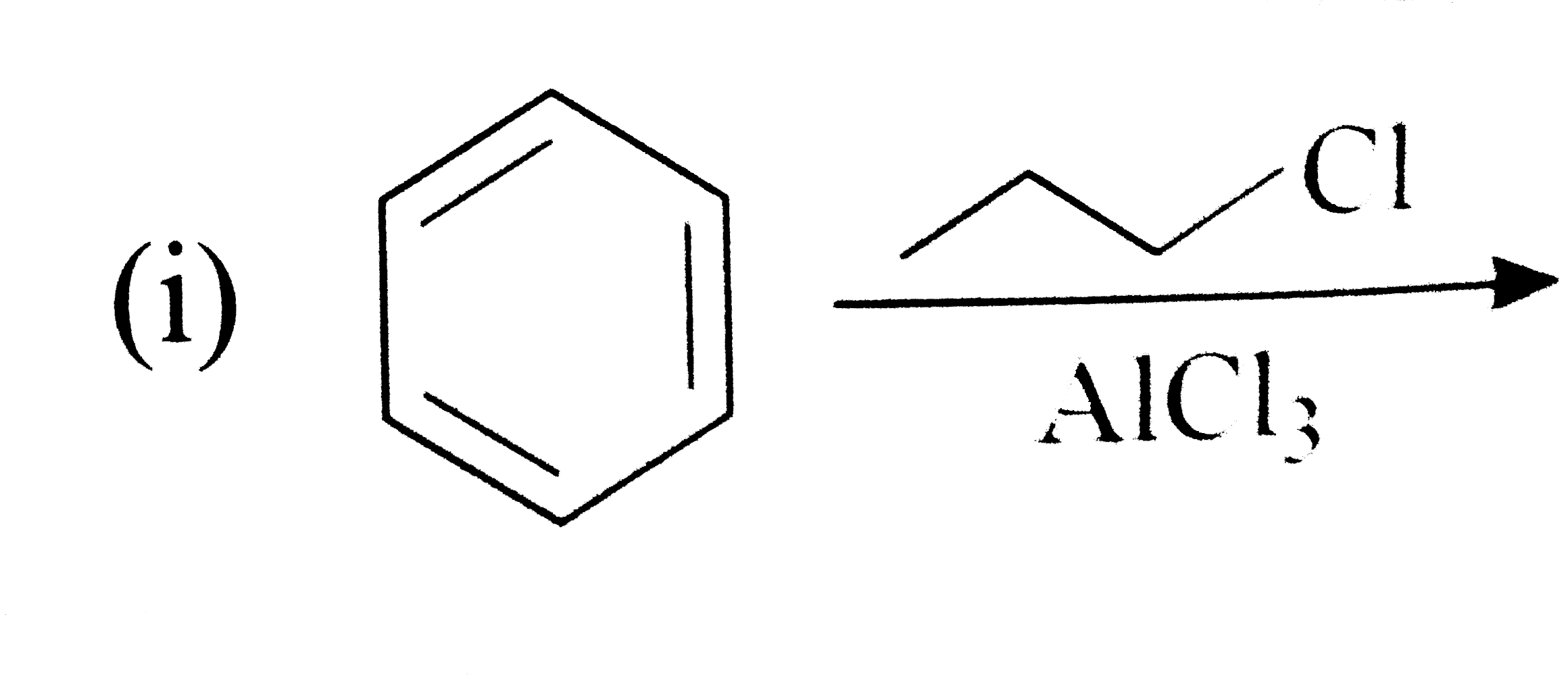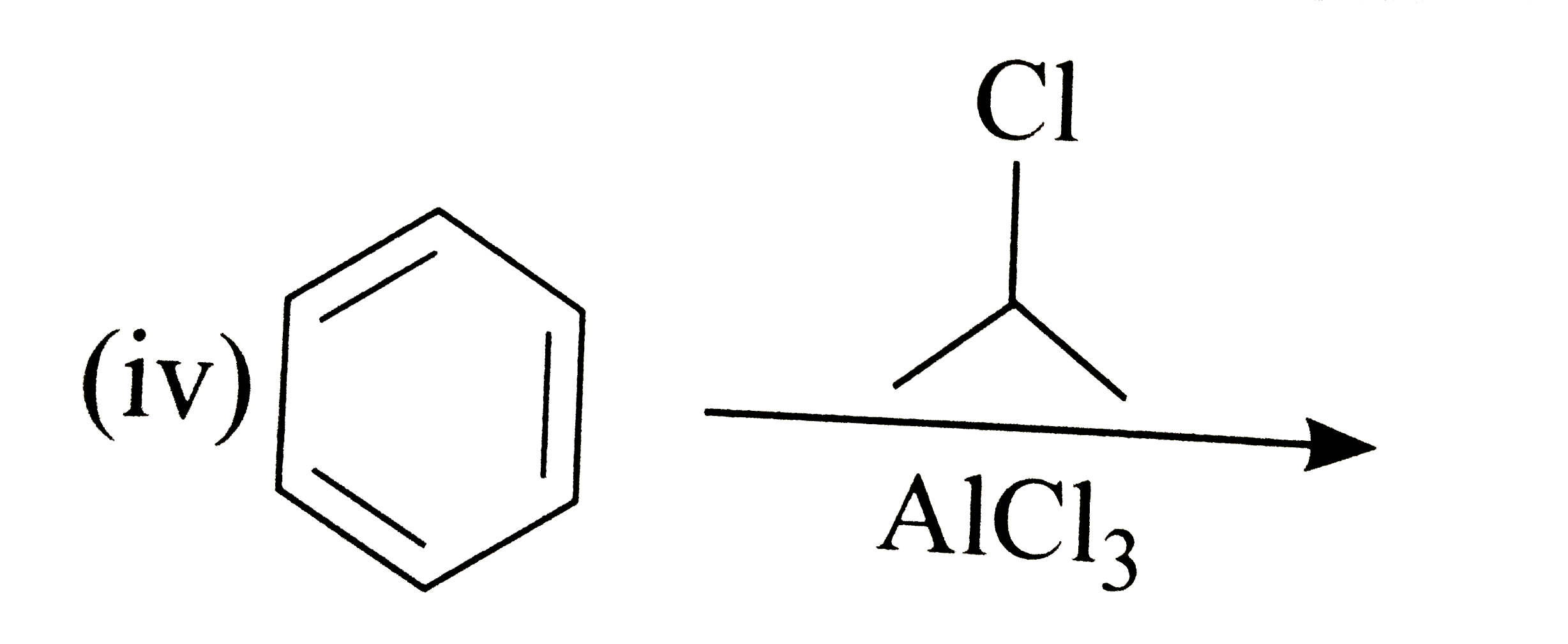Which of the following reactions will give result as alkane as major product ?




The correct Answer is:A, B, D
To determine which reactions will yield alkanes as the major product, we need to analyze the given options based on the type of reagents and the nature of the alkyl halides involved.
1. Identify the Reagents: The question provides four options involving different reagents. The key reagents mentioned are lithium aluminum hydride (LiAlH4) and sodium borohydride (NaBH4), both of which are known to be strong reducing agents.
2. Understand the Reaction Mechanism:
- Reducing Agents: Lithium aluminum hydride and sodium borohydride can reduce alkyl halides (1° and 2°) to alkanes.
- Elimination vs. Reduction: For tertiary alkyl halides, the reaction tends to favor elimination, producing alkenes instead of alkanes.
3. Analyze Each Option:
- Option A: If it involves a 1° or 2° alkyl halide with LiAlH4 or NaBH4, it will yield an alkane.
- Option B: Similar to option A, if it involves 1° or 2° alkyl halides, it will also yield an alkane.
- Option C: If this option involves a 3° alkyl halide, it is likely to undergo elimination rather than reduction, leading to the formation of an alkene instead of an alkane.
- Option D: If it involves a 1° or 2° alkyl halide, it will yield an alkane.
4. Conclusion: Based on the analysis:
- Options A, B, and D will produce alkanes as the major product.
- Option C will not produce an alkane due to the elimination reaction occurring with the 3° alkyl halide.
Final Answer:
The reactions that will give alkanes as the major product are Option A, B, and D.
- Reducing Agents: Lithium aluminum hydride and sodium borohydride can reduce alkyl halides (1° and 2°) to alkanes.
- Elimination vs. Reduction: For tertiary alkyl halides, the reaction tends to favor elimination, producing alkenes instead of alkanes.
- Option A: If it involves a 1° or 2° alkyl halide with LiAlH4 or NaBH4, it will yield an alkane.
- Option B: Similar to option A, if it involves 1° or 2° alkyl halides, it will also yield an alkane.
- Option C: If this option involves a 3° alkyl halide, it is likely to undergo elimination rather than reduction, leading to the formation of an alkene instead of an alkane.
- Option D: If it involves a 1° or 2° alkyl halide, it will yield an alkane.
- Options A, B, and D will produce alkanes as the major product.
- Option C will not produce an alkane due to the elimination reaction occurring with the 3° alkyl halide.
The reactions that will give alkanes as the major product are Option A, B, and D.
Topper's Solved these Questions
- HYDROCARBONS (ALKANE, ALKENE and ALKYNE)Book:HIMANSHU PANDEYChapter:HYDROCARBONS (ALKANE, ALKENE and ALKYNE)Exercise:More Than One Correct (Q.26 To Q.50)
Explore 25 Videos
- HYDROCARBONS (ALKANE, ALKENE and ALKYNE)Book:HIMANSHU PANDEYChapter:HYDROCARBONS (ALKANE, ALKENE and ALKYNE)Exercise:Linked Comprehension Type (Q.1 To Q.25)
Explore 25 Videos
- HYDROCARBONS (ALKANE, ALKENE and ALKYNE)Book:HIMANSHU PANDEYChapter:HYDROCARBONS (ALKANE, ALKENE and ALKYNE)Exercise:Level 2 (Q.201 To Q.225)
Explore 24 Videos
Similar Questions
Knowledge Check
Which of the following reaction will give acetylene as major product ?
A2[CHI3]Ag−−→ΔBH3C−CH2−Bralc.−−→KOHCC∣BrH2−C∣BrH2Zn−−→ΔDAll of theseWhich of the following reaction will not give ether as a major product ?
ACH3CH2Cl+Ag2O(dry)B(CH3)3CCl+CH3CH2O−Na+→C DCH3Cl++Na−O−CH3| C | CH3−CH3→
DCH3Cl++Na−O−CH3| C | CH3−CH3→Which of the following reaction will not give ether as a major product :-
ACH3−CH3−−O⊕Na+CH3−CH2−Cl→B CCH3−CH3−−⊕Na+CH3−C2H5∣C∣CH3−Br→DCH3−CH3−−⊕Na+CH3−C∣CH3H−CH2−I→
CCH3−CH3−−⊕Na+CH3−C2H5∣C∣CH3−Br→DCH3−CH3−−⊕Na+CH3−C∣CH3H−CH2−I→
Which of the following reactions will not yield alcohol as the major product ?
View SolutionIn which of the following reaction cyanide will be obtained as a major product?
View SolutionIn which of the following reaction cyanide will be obtained as a major product ?
View SolutionIn which of the following reaction cyanide will be obtained as a major product?
View SolutionWhich of the following reactions would give isopropyl benzene as the major product ?




View Solution

